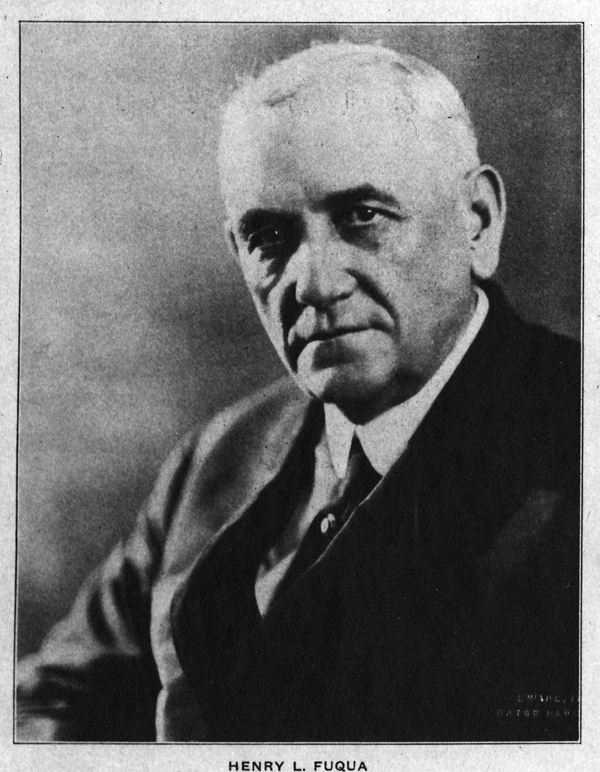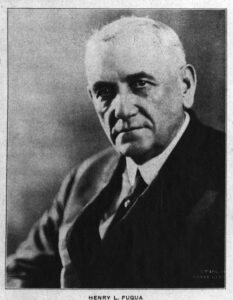Henry Luce Fuqua
During his short term as governor from 1924 to 1926, Henry Luce Fuqua advocated increased levee and road construction in Louisiana as well as the expansion of Louisiana State University.

Courtesy of State Library of Louisiana
Henry Luce Fuqua. Unidentified
During his short term as governor from 1924 to 1926, Henry Luce Fuqua advocated increased levee and road construction in Louisiana as well as the expansion of Louisiana State University. In addition, he worked to end the violence of the Ku Klux Klan, pushing through anti-Klan legislation that his predecessor, Governor John M. Parker, initiated.
Born in Baton Rouge, on November 8, 1865, Henry Fuqua was the son of James Overton Fuqua and Jeanette Fowles Fuqua. He was educated at Magruder’s Institute and Louisiana State University, both in Baton Rouge. On June 24, 1890, he married Laura Matta of Baton Rouge. Before becoming governor, Fuqua served as an assistant to the construction engineers of the Yazoo and Mississippi Valley Railroad. From 1892 to 1916, he founded and managed the Fuqua Hardware Company before serving as warden of the Louisiana State Prison at Angola until 1924.
Fuqua was elected governor in 1924 after defeating Lt. Gov. Hewitt Bouanchaud and Huey P. Long in the Democratic primary. Members of the New Orleans Choctaw Club, an exclusive and politically powerful group commonly known as the “Old Regulars,” helped ensure Fuqua’s victory. He died on October 11, 1926, halfway through this term, and was buried in Magnolia Cemetery in Baton Rouge. His remains were later removed to Roselawn Cemetery, also in Baton Rouge.
This entry was adapted from the Dictionary of Louisiana Biography, a publication of the Louisiana Historical Association in cooperation with the Center for Louisiana Studies at the University of Louisiana, Lafayette.
Sources: New Orleans Times-Picayune, October 12-13, 1926; Miriam G. Reeves, The Governors of Louisiana (1962); Robert Sobel and John Raimo, eds., Biographical Directory of the Governors of the United States, 1789-1978, II, Iowa-Missouri (1978).
